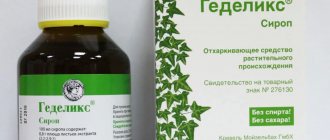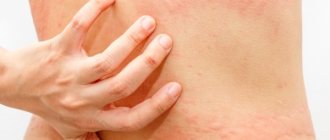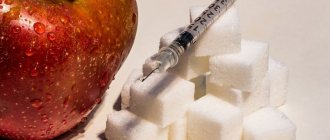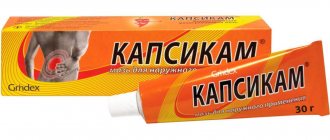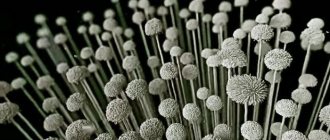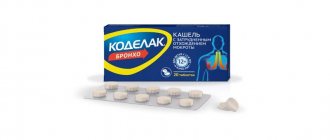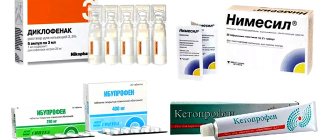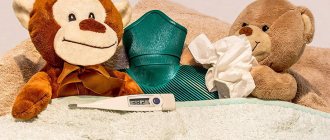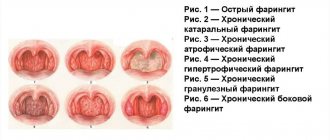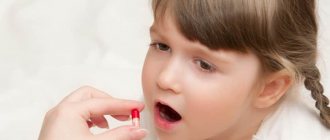Updated: 02/01/2021 16:57:38
Share:
*Review of the best according to the editors of expertology.ru. About the selection criteria. This material is subjective in nature, does not constitute advertising and does not serve as a purchase guide. Before purchasing, consultation with a specialist is required.
All medications that are classified as expectorants, or expectorants, serve one purpose: to effectively remove mucus from small and medium-sized bronchi.
Accumulated mucus must be removed, since it constantly irritates the sensitive endings, or receptors of the cough reflex arc. As a result, the patient begins to cough and bronchospasm occurs. Sputum is a very good breeding ground for the proliferation of not only viruses, but also pathogenic bacteria and fungi. Finally, trophic disorders of the mucous membrane of the bronchial tree, caused by excessive accumulation of sputum, lead to chronic inflammation, which can accompany a person for many years.
In some cases, sputum is poorly expectorated, stagnation and secondary infection with bacterial flora occur, and this contributes to the chronicity of the pulmonary infection. Medicines that help remove phlegm by stimulating physiological mechanisms are classified as expectorant drugs.
In other cases, the physiological mechanisms of expectoration of sputum work well, but it is so thick that it does not clear on its own. Therefore, in this situation, other means are needed that act not on the mechanisms of sputum removal, but on its physical and chemical properties. They contribute to the liquefaction and melting of sputum, and therefore are called mucolytics, in some cases you can find another name - secretolytics.
Finally, there is a third group of drugs that help fight cough. But their effect is completely opposite: they do not contribute at all to stimulating the discharge of sputum, nor to its liquefaction, nor to expectoration. They simply struggle with coughing as a painful symptom that significantly reduces their quality of life. After all, not every cough needs good drainage and sputum removal.
There are such conditions, for example, associated with excessive irritation of cough receptors (after being in a smoky atmosphere). And in this case, we need drugs that suppress either the cough center located in the brain, or act on receptors that are located in the bronchi and reduce their sensitivity. As a result, cough, as a symptom, either begins to bother you much less or disappears completely. This rating of cough medications includes representatives of all these three groups.
Operating principle
The products are divided into several groups, each of which has its own properties:
- Irritating effect. The receptors of the gastric mucosa are irritated, resulting in stimulation of the bronchial glands with a subsequent increase in secretion production. If the patient takes such drugs, the sputum will soon liquefy and be easily removed from the organs.
- Preparations with sulfhydryl groups. They oxidize and break the disulfide bonds of bronchial secretions, due to which the mucus ceases to be too viscous and the pus thins out.
- Drugs that affect receptors located in the bronchi. The effect of the drug is on the bronchial mucosa, as well as subsequent stimulation of the production of bronchial secretions.
- Medicines based on vasicin. This is a plant substance, the analogue of which is bromhexine. It affects the human body, simultaneously enhancing the production of secretions and destroying polysaccharide bonds in it. It is one of the most effective and efficient drugs in the fight against phlegm and cough.
Types of sputum produced
During a wet cough, it is important to pay attention to what kind of sputum is produced. Only with the help of this parameter alone can one assume the pathology that the child has encountered.
Copious sputum . When a lot of mucus is released, this may indicate that the child has bronchitis or tracheitis. At the same time, coughing attacks are long and frequent.
The sputum is orange . With such manifestations, a diagnosis of pneumonia can be assumed. This is pneumonia, the treatment of which should not be carried out using traditional methods. The child often complains of chills, as there is an elevated temperature.
Watery sputum . This type of discharge warns parents that a pathological process is occurring in the child in one of the organs of the respiratory system.
Watery sputum is a sign that a pathological process is occurring in the organs of the respiratory system
Sputum mixed with blood . There are two reasons why a cough with such sputum may appear: problems with the cardiovascular system and tuberculosis. In both cases, medical diagnosis is required.
Sputum with pus . Indicates severe lung abscess or bronchiectasis. Most often it has a pronounced unpleasant odor.
Sticky glassy sputum . May occur against the background of bronchial asthma. Lack of treatment can have dire consequences.
In bronchial asthma, viscous glassy sputum
If you experience a wet cough, you should consult a doctor to have the mucus taken for laboratory analysis. This will allow you to clarify the diagnosis and select effective expectorants.
Herbal preparations
They have a universal effect and are widely used in the treatment of coughs. In addition to their expectorant effect, they also help the body fight viruses and bacteria.
The lion's share of herbal preparations has a rather weak effect, so they are recommended to be used in combination with other means. They cannot replace antibacterial or antiviral drugs.
Herbal medicines rarely cause allergic reactions, but if the patient is allergic to pollen, it is better not to use herbal medicines.
Let's consider what herbal preparations can be prescribed.
- Active ingredient: common thyme (extract):
- Bronchicum S (syrup) is used in the treatment of acute and chronic diseases of the respiratory system, which are accompanied by a suffocating cough. The drug is prohibited for use by patients with heart failure, fructose intolerance, impaired liver and kidney function, or hypersensitivity to the components. Pregnant and lactating women are not recommended to use. Side effects include the development of an allergic reaction, swelling, rash, itching. The cost in pharmacies starts from 324 rubles/100 ml.
- Tussamag. The form of the drug is syrup. Pharmacological actions – bronchodilator, expectorant. The 9 percent syrup also has antimicrobial effects. Side effects include allergic reactions, nausea. Contraindications include renal, liver and heart failure, pregnancy, lactation, children under 1 year of age and hypersensitivity to the components. The price of syrup is 314 rubles/200 ml.
- Main substance – ivy leaf extract:
- Gedelix is produced in the form of syrup, available in volumes of 50 and 100 ml. This is a pharmaceutical drug that has an expectorant and antispasmodic effect. Prescribed for the treatment of respiratory diseases, which are characterized by poor sputum production. Not for use in cases of metabolic disorders in the urine cycle, in children under 2 years of age, or in the presence of hypersensitivity. It is not advisable to use Gedelix with other antitussive drugs. Overdose is possible. Its symptoms: nausea, vomiting, diarrhea, restlessness. Side effects include shortness of breath, allergic reaction, angioedema, itching. Price – 415 rub./100 ml.
Overslept. The syrup, which has an expectorant and antispasmodic effect, thins viscous sputum and promotes its discharge. Contraindicated in infants and alcoholics, as well as in those with hypersensitivity to the components. This drug can be prescribed to breastfeeding and pregnant women, but this should be done with caution. Side effects include allergic reactions. There were no cases of overdose. Cost – 457 rub./100 ml.
- Active ingredient: medicinal sage leaves (extract):
- Dr. Theiss - lozenges with antimicrobial, antiseptic and anti-inflammatory effects. Prescribed for inflammatory processes in the oral cavity, hoarseness. Contraindications include hypersensitivity to the components; side effects include allergic reactions, itching, angioedema, and sometimes anaphylactic shock. Price – about 150 rub./50 g.
- Sage is a combined preparation in the form of lozenges that has astringent properties. Lozenges are prescribed for the treatment of inflammatory diseases of the upper respiratory tract and oral cavity. Contraindications include individual sensitivity, pregnancy and lactation, children under 5 years of age, acute nephritis. Side effects include allergic reactions. Allowed for diabetics. Cost – 221 rub./24 pcs.
- The active ingredient is marshmallow root extract. The most popular drug in this group is Mucaltin. These are tablets with expectorant properties. Prescribed for acute and chronic respiratory diseases. Contraindications include duodenal and gastric ulcers, as well as hypersensitivity to components, side effects - allergic reactions. Price – 72 RUR/20 pcs.
- The main substance is common thyme herb extract and primrose root extract:
- Bronchicum TP (elixir) is prescribed for respiratory diseases accompanied by problems with mucus elimination. The drug is prohibited for use in case of hypersensitivity, pregnancy, or congenital fructose intolerance. Undesirable reactions of the body include allergies, vomiting, diarrhea. Price – 299 rub./130 g.
- Gerbion syrup has an expectorant, antimicrobial and anti-inflammatory effect. Prescribed for the complex treatment of inflammatory processes of the upper respiratory tract. The drug has quite a lot of contraindications: children under 2 years of age, bronchial asthma, diabetes, fructose intolerance. It is not recommended for pregnant women either. Side effects include possible allergic reactions. Price – 280 rub./150 ml.
- Active ingredients: liquid plantain extract + liquid thyme extract: Eucabal is a herbal medicine in the form of a syrup with an expectorant and anti-inflammatory effect. Prescribed as part of complex therapy for inflammatory diseases of the respiratory tract. The drug is not prescribed to people with hypersensitivity. Undesirable manifestations – allergies. Price – 216 RUR/100 ml.
- Preparations based on liquid extracts of thyme and ivy. Bronchipret is a syrup that is prescribed for the treatment of inflammatory diseases of the respiratory tract. It is not prescribed if there is an individual intolerance, and patients with diabetes should be careful, as the syrup contains sugar. Contraindicated during pregnancy and lactation. Overdose with nausea, vomiting and diarrhea is possible. Among the undesirable manifestations are problems with the gastrointestinal tract. Price – 199 RUR/50 ml.
- Herbion (plantain syrup) is a preparation based on liquid extracts of plantain leaves and mallow flowers. This is an expectorant that is used for inflammatory diseases of the upper respiratory tract. Not for use by diabetics, children under 2 years of age, or with hypersensitivity. Pregnant and lactating women are also not recommended. Side effects include allergic reactions. Price – 294 RUR/150 ml.
- Pectusin is a popular remedy. Active ingredients: eucalyptus leaf oil + levomenthol. Release form: tablets with a specific smell and taste. Intended for resorption, used for inflammatory processes, included in the course of complex therapy. Can be used by children from 7 years of age. There may be side effects associated with an allergy to menthol, as well as diabetes and bronchial asthma. It is not prescribed to pregnant women unless absolutely necessary. Side effects - allergic reactions. Price – 66 rub. for 10 tablets.
- Doctor MOM (herbal lozenges) is a combined herbal medicine with expectorant and anti-inflammatory effects, prescribed for the symptomatic treatment of acute and chronic diseases. The main ingredients are ginger rhizome extract + licorice glabra root extract + emblica officinalis fruit extract + levomenthol. It is not recommended for pregnant and lactating women, as well as people with hypersensitivity to the components. Allergic reactions are possible. Price – 132 RUR/20 pcs.
- Dr. Theiss (eucalyptus ointment) is used for coughs and colds. Active ingredients: camphor + Scots pine oil + eucalyptus leaf oil. Contraindications include hypersensitivity, skin diseases, skin damage. Prohibited during pregnancy or breastfeeding. The product may cause undesirable reactions - headache, irritation of the skin and mucous membranes, dizziness. Price – 344 rub./50 g.
- Breast collection No. 1 is an expectorant based on marshmallow roots, oregano herb and coltsfoot leaves. It is contraindicated for use simultaneously with antitussive drugs. Can be used by pregnant and breastfeeding women if the benefit outweighs the risk. The collection is also prohibited for children under 12 years of age and people with hypersensitivity to the drug. Side effects include allergic reactions. The cost in pharmacies starts from 68 rubles/30 g.
- Breast collection No. 2 is available in the form of filter bags. This is a combination drug based on coltsfoot, plantain leaves and licorice roots with an expectorant and anti-inflammatory effect. Contraindications include hypersensitivity; children under 12 years of age are strictly prohibited. Side effects - allergic reactions are possible. Cost in pharmacies – 101 rubles/20 pcs.
- Chest collection No. 4 is a combined drug with expectorant and anti-inflammatory effects. Active ingredients: calendula officinalis flowers + wild rosemary shoots + tricolor violet herb + chamomile flowers. Prescribed for infectious and inflammatory diseases of the respiratory tract. Cannot be used by people with hypersensitivity. Price – 105 RUR/20 pcs.
- There are also herbal-based preparations with a complex composition:
- Travisil is used for coughs and colds. Contraindicated in the presence of hypersensitivity to the components of the drug, organic heart disease, arterial hypertension, hepatitis, nephritis, severe obesity. Safety of use during pregnancy has not been established. Prohibited for children under 3 years of age. Side effects can manifest themselves in the gastrointestinal tract and in the form of neurological disorders. The cost in pharmacies is 146 rubles/100 ml.
Linkas (syrup) is a combination drug that reduces the intensity of cough and has an expectorant effect. Contraindicated in children under six months of age with hypersensitivity to the components. Should be used with extreme caution if you have diabetes. Side effects include allergic reactions. Price – 161 RUR/90 ml.
- Carmolis (drops) is a combination drug that is contraindicated in cholecystitis, alcoholism, pregnancy and lactation, children, and in the presence of hypersensitivity to the components. Side effects include allergic reactions. Price – 469 RUR/40 ml.
Sinekod
An expectorant based on butamirate citrate. Suppresses cough and facilitates breathing. Sinekod is available in several dosage forms:
- 200 ml of syrup – 378–406 rubles;
- 100 ml of syrup – 258–276 rubles;
- drops for oral administration, 20 ml – 397–426 rub.
Sinekod is prescribed for the treatment of viral cough, before or after bronchoscopy. Drops and syrup should be taken before meals in a dosage of 15 drops or 5 ml - for children, 25 drops. or 14 ml for adults. Expectorants for dry coughs should be replaced with analogues if the following contraindications exist:
- individual intolerance to the composition;
- pregnancy;
- children under 3 years of age.
Mucolytic drugs
They help thin out thick mucus in the bronchi and reduce the ability of sputum to stick to the wall of the respiratory tract. This group of drugs has a weak anti-inflammatory effect.
Mucolytic drugs include the following groups:
- Active ingredient: acetylcysteine:
- ACC has a mucolytic effect, facilitating sputum discharge due to a direct effect on deformation properties. Patients are prescribed ACC when their symptoms include a large amount of sputum. The drug should not be used during pregnancy, lactation, children under 2 years of age, gastric ulcer and duodenal ulcer, pulmonary hemorrhage. Side effects include allergic reactions. Price – 250 rubles/100 ml.
- Vicks Active ExpectoMed – promotes the liquefaction of sputum, has a secretolytic and secretomotor effect. Not prescribed for patients with individual intolerance, gastrointestinal ulcers, or children under 2 years of age. Not used for the treatment of pregnant and lactating women. Side effects include bleeding, allergic reactions, headaches. Price – 64 RUR/20 pcs.
- Fluimucil has antioxidant properties - it thins sputum, increases its volume and facilitates separation. Contraindications for use are peptic ulcer disease and age under 18 years. You can take it during pregnancy if the benefit outweighs the risk. Undesirable reactions can manifest themselves from the gastrointestinal tract, in the form of allergic reactions and locally. The cost in pharmacies starts from 131 rubles. for 10 pcs.
- The main component is carbocisteine:
- Bronchobos is a syrup with mucolytic and expectorant effects. Prescribed for acute and chronic bronchopulmonary diseases. Contraindicated for liver disease, epilepsy, alcoholism, cystitis, children under 3 years of age, pregnant and lactating women. In case of overdose, nausea and diarrhea are possible. Side effects - hypersensitivity, nausea, vomiting, diarrhea. Price – 381 RUR/200 ml.
- Libexin Muco - helps reduce the level of viscosity and increase the level of elasticity of the secretion. The drug should not be used during pregnancy, children under 15 years of age, peptic ulcers, or hypersensitivity to components. Undesirable reactions from the gastrointestinal tract, immunity, skin and subcutaneous tissues, as well as allergic reactions are possible. Price – 480 RUR/125 ml.
- Fluditec is available in the form of syrup 2 and 5%, used in the treatment of chronic and acute bronchopulmonary diseases. Contraindicated in case of gastric ulcers, in the first trimester of pregnancy and intolerance to carbocisteine. In case of overdose, nausea, vomiting and diarrhea are possible. The cost in pharmacies starts from 412 rubles/125 ml.
- The main component is ambroxol:
- Ambroxol is an expectorant and sputum thinner medicine belonging to the benzylamine group. Do not use if you have an allergic reaction to the components of this medicine, if you have kidney or liver problems, if you are pregnant or have an ulcer. In case of overdose, consequences from the gastrointestinal tract are possible. Side effects manifest themselves in the form of allergic reactions or gastrointestinal problems. The cost in pharmacies starts from 101 rubles. for 100 ml.
- Ambrobene is a mucolytic expectorant drug. Indicated for acute and chronic respiratory diseases. Contraindicated in the first trimester, sugar deficiency and fructose intolerance, as well as hypersensitivity. Possible manifestation of undesirable reactions from allergic reactions, gastrointestinal tract. Price – 115 rub./100 ml.
- Lazolvan is a drug with secretomotor, secretolytic and expectorant effects. Indicated for acute and chronic bronchitis, pneumonia, etc. Contraindicated during pregnancy, lactation, and in the presence of renal or liver failure. Side effects are allergic reactions, as well as heartburn, gastralgia, nausea. Cost – 203 rub./100 ml.
- Flavamed is an expectorant and sputum thinner, prescribed for acute or chronic diseases of the respiratory organs. Contraindicated for liver and kidney disorders, children under 6 years of age, and allergies to components. During pregnancy, safety rules should be followed. In case of overdose, stool disorders are possible, and in case of side effects, gastrointestinal disorders and allergic reactions are possible. Price – 166 RUR/10 pcs.
- Bromhexine is a drug based on sodium bicarbonate and thermopsis grass powder. It has a mucolytic and expectorant effect. Indicated for chronic inflammatory lung diseases. Contraindicated during pregnancy and children under 3 years of age. Undesirable reactions from the digestive system, nervous, and respiratory systems are possible, and dermatological reactions are also possible. Price – 95 RUR/50 pcs.
- Active ingredients: Bromhexine + guaifenesin + salbutamol. Ascoril is a combined drug with bronchodilator and expectorant effects. Prescribed for bronchial asthma, acute and chronic bronchitis. Contraindicated in case of tachycardia, heart rhythm disturbances, or hypersensitivity to the components. Side effects are rare - hand tremors, convulsions, tachycardia. Price – 348 RUR/20 pcs.
The most common causes of cough
A cough in itself is not a disease - it is a bell signaling a problem. Sometimes the causes of malaise can be ordinary - penetration of pathogens into the nasopharynx, excess secretory fluid or dust particles. Here are some other common factors:
- smoking;
- worsening cold;
- diseases of the respiratory system (embolism, pneumonia);
- asthma;
- nervous disorders;
- viral or bacteriological infection;
- penetration of gastric juice into the esophagus;
- vocal cord injury (mechanical damage).
Cough varies depending on its origin. The greatest discomfort is caused by dry coughing - in this case, the sputum does not come out, which provokes new attacks. The production of phlegm also causes swelling of the larynx, which makes the sounds barking. With asthma, breathing is difficult, and with bronchial lesions, characteristic wheezing is heard. There is also a neurological cough, the source of which is stress. If the cough is moist and the sputum is cleared well, rejoice - you are on the road to recovery.
Reflex drugs
When using drugs of this group, an irritating effect occurs on the gastric mucosa, which causes irritation of the cough and vomiting centers, which are located in the medulla oblongata.
An increase in its activity enhances the synthesis of bronchial secretions and the severity of the cough reflex. The duration of action of such a drug is relatively short, and if the dose is increased, the vomiting center also begins to become active, causing the patient to experience severe vomiting and nausea.
Drugs with reflex action are those that contain the following components:
- thyme (Codelac Broncho - syrup);
- wild rosemary (expectorant collection);
- thermopsis (Thermopsol);
- plantain (Stoptussin phyto);
- ivy (Prospan inhalation drops).
A short list of the best cough syrups for adults and children - Table
Cough syrup is an oral medication that suppresses the cough reflex or stimulates the coughing up of mucus. Depending on the active ingredients, there are 4 types of drugs - mucolytic, expectorant, antitussive and combined. The choice of syrup is influenced by various factors - the age of the patient, the form of the disease, and the productivity of the cough. Many medications contain components that eliminate other manifestations of the disease - soreness in the throat, swelling of the mucous membranes.
| Place | Syrup name | Characteristics in the rating | price, rub. |
| The best cough syrups for adults | |||
| 1 | Sinekod | Suppresses cough, having a direct effect on the cough center | 190-380 |
| 2 | Ambrobene | Mucolytic and expectorant drug | 108-188 |
| 3 | Doctor mom | Herbal expectorant | 174-315 |
| 4 | Herbion primrose syrup | Has an expectorant, anti-inflammatory, antimicrobial effect, helps reduce sputum viscosity and improve sputum discharge | 291-320 |
| 5 | Askoril expectorant | A drug with mucolytic, expectorant and bronchodilator effects | 292-427 |
| 6 | Joset | Combined drug, has a bronchodilator, expectorant, mucolytic effect | 191-289 |
| 7 | Libexin muco | Mucolytic expectorant | 369-487 |
| 8 | Plantain and coltsfoot syrup | Helps thin and remove mucus | 144-184 |
| 9 | Bronchoton | Combined herbal medicine. Has antitussive and bronchodilating effects | 120-132 |
| 10 | Codelac Broncho with thyme | A drug with mucolytic, expectorant and anti-inflammatory effects. Combined expectorant | 151-296 |
| The best cough syrups for children | |||
| 1 | Gedelix | Has expectorant, mucolytic and antispasmodic effects due to the presence of saponins | 361-471 |
| 2 | Tussamag | Herbal medicine with expectorant action; thins mucus and reduces its viscosity, facilitating its better removal | 235-312 |
| 3 | Dr. Theiss with plantain | Has expectorant, anti-inflammatory and mucolytic effects | 249-320 |
| 4 | Lazolvan | Mucolytic and expectorant drug | 151-395 |
| 5 | Herbion plantain syrup | It has an expectorant, anti-inflammatory, antimicrobial (bacteriostatic) effect. Facilitates the evacuation of mucus from the bronchi | 257-334 |
| 6 | Bronchipret | Helps reduce the viscosity of sputum and accelerate its evacuation | 201-471 |
| 7 | Fluditek | Modern mucolytic and mucoregulator | 270-368 |
| 8 | overslept | Herbal cough medicine. Has expectorant, mucolytic and bronchospasmolytic effects | 391-501 |
| 9 | Codelac neo | Centrally acting antitussive | 169-289 |
| 10 | Bronchorus | Has secretomotor, secretolytic and expectorant effects | 60-80 |
Inhalations
Inhalation is a simple and fairly effective method of combating respiratory diseases. The advantages of this method include:
- narrow focus (does not “poison” the entire body);
- substances that are used for inhalation are able to break down into very small particles, which helps cover a large area of the mucous membranes, as well as be absorbed into the blood as quickly as possible;
- after the procedure, the villi in the respiratory tract begin to work, which causes the removal of foreign particles from the bronchopulmonary system.
There are also rules for inhalation:
- the procedure should be carried out 1 hour after eating so that the medications do not affect the esophagus and gastric mucosa;
- you should focus on the procedure and not be distracted by extraneous issues;
- for diseases of the throat, trachea, bronchi and lungs, the fumes should be inhaled through the mouth;
- You should not smoke, as nicotine has a constricting effect on blood vessels, and the substances cannot be fully absorbed.
There are several types of inhalations.
Aerosol
For them, a special device is used - a nebulizer, which is quite expensive, but at the same time has the maximum level of efficiency. They are divided into ultrasonic and compressor. For all, the principle of action is to convert the medicine into an aerosol, which makes it more accessible to the tissues of the respiratory system.
In an ultrasonic inhaler, this effect is achieved due to a piezocrystal. And in a compressor - due to a strong stream of air. You should be aware that after the first use of the nebulizer, the condition may worsen for a short time, since the medicinal substances cause a cough, which clears the bronchi. Already on the second day the person feels better.
For wet coughs, the following types of drugs are used to remove sputum:
- Fluimucil - the course of treatment is about 10 days;
- Lazolvan, Ambrobene is diluted with saline in a ratio of 1:1, the course of treatment is 5 days;
- Sinupret is a homeopathic herbal medicine;
- Pertussin - inhalations need to be carried out three times a day.
If inhalation is carried out using several drugs, then the following sequence must be followed:
- first inhalation of bronchodilators;
- after 20 minutes, use sputum thinners;
- after another half an hour - antiseptics;
- anti-inflammatory drugs can be used without interruption after antiseptics;
- Immunomodulatory drugs are allowed after a cycle of treatment procedures or as prophylaxis.
The nebulizer should be washed thoroughly after each use. Herbs cannot be used for inhalation, as their microparticles can enter the respiratory system or clog the device.
Steam
Their effect is to treat with warm steam. To do this, the medicinal substance should be dissolved in boiling water and the steam should be inhaled. It should be borne in mind that only adults can perform inhalations over a saucepan, and for children with their sensitive mucous membranes - only over a teapot with a narrow neck, putting a cardboard crown on the spout.
The duration of such inhalations is about 1-3 minutes for a child and 10-15 minutes for adults. Steam inhalations should not be used at temperatures above 38 degrees, as well as in the presence of nosebleeds, heart disease, lung disease and bronchial asthma.
Wet
They are carried out using air cooled to 30-40 degrees or a solution at room temperature (this is easier for children and patients who cannot use steam inhalation).
Steam reduces the viscosity of mucus, thins it, and speeds up elimination. You can use mixtures of medicinal plants, from which water vapor extracts the essential oils they contain.
Before inhalation you need to take 2 tbsp. l. collection, pour 500 ml of water heated to 100 degrees and let it brew for half an hour, then lean over the bowl, cover your shoulders with a towel and slowly and deeply inhale the steam for 5-15 minutes.
You can also use the following recipe: pour 200 ml of hot mineral water into an enamel pan, then cover with a towel and breathe.
Additional information on inhalations for the treatment of diseases of the respiratory system can be found here.
Symptoms of expectorant cough
The main symptom of an expectorant cough is the child’s production of sputum, or mucus. The attack begins with a deep breath, then the glottis closes. The muscles of the bronchi and peritoneum tense, and if a sufficient amount of sputum has accumulated, it is involuntarily released along with air.
In addition to coughing attacks, a child and an adult may have the following symptoms:
- dyspnea;
- hoarse breathing;
- difficulty breathing;
- chest pain;
- increased body temperature;
- decreased appetite;
- general weakness;
- ailments.
With a productive cough, the color and nature of the sputum may change. When a child develops a disease, parents should not self-medicate. Although traditional methods can be effective, some of them have side effects. It is worth considering that natural components can provoke an allergic reaction and only worsen the child’s well-being.
Folk remedies
Traditional medicine has a huge number of recipes that can be used to remove mucus and effectively cleanse the respiratory tract. Let's look at a few recipes:
- Take a glass of viburnum berries and pour one liter of hot water, then simmer the resulting mixture over low heat for about 10-20 minutes. Pour the broth into a thermos and leave to steep for about 2 hours, then strain it and take half a glass 3 times a day, adding 1 tsp to each serving. liquid honey.
- Take 1.5-2.5 tbsp. l. dried ground thyme herb, pour a liter of hot boiled water and let it brew for about one and a half to two hours, after which you can take 1 glass of herbal infusion three times a day in between meals.
- Take one part each of coltsfoot leaves, anise fruits, 2 parts each of thyme herb and calamus rhizomes and 5 parts of licorice rhizomes. Grind everything, mix, then take 1 tbsp. l. collection and fill it with a glass of cool purified or melt water. Place in a warm place for 2 hours. Next, you need to bring the mixture to a boil, pour it into a thermos and leave it like that for an hour. Strain and you can take a quarter glass 3-4 times a day on an empty stomach.
- Liquorice root. Finely chop the dry root and pour in half a liter of water, put on the fire and bring to a boil, then cook for another 5-7 minutes over low heat. Remove the broth, let it brew for 1.5 hours and strain. Take 1st tbsp. l. every 3-4 hours.
- Grate the peeled radish, then place the pulp in cheesecloth and squeeze out the juice. It should be used to remove mucus from the respiratory tract. You need to take 1-2 tbsp. l. on an empty stomach, mixing with liquid honey.
- Take 1 part of oregano and 2 parts of marshmallow rhizome and coltsfoot herb. You also need 1-2 tsp. honey and grated fresh lemon zest. Mix all the herbs and pour 1 tbsp. l. collecting 2 glasses of water. Bring the mixture to a boil, then pour into a thermos and wait 2 hours. Strain the finished tincture through cheesecloth and mix with honey and zest. Take 100 g 3 times a day 20 minutes before meals. Course duration is from 5 to 9 days.
Other traditional medicine recipes that are aimed at treating cough are described here.
Prevention of disease development
To prevent the occurrence of an expectorant cough and the accumulation of sputum in the respiratory tract, it is necessary to take preventive measures in advance. They are effective both before the disease and during the recovery stage, in order to speed up recovery.
The following practical tips should be taken into account:
Regularly ventilate living rooms to prevent coughing
- regularly be outdoors, even on frosty days;
- avoid spending time in confined spaces in crowded places;
- drink 1.5-2 liters of water every day;
- maintain an optimal level of humidity in the rest room;
- Carry out thorough daily cleaning to reduce contact with dust;
- maintain normal air temperature within 20 degrees;
- regularly ventilate living rooms;
- dress according to the weather, avoiding both hypothermia and overheating;
- exercise in moderation;
- to live an active lifestyle.
By following these simple recommendations, a parent can reliably protect their child from developing a severe cough and any diseases of the respiratory system.
To prevent the development of complications, it is necessary to consult a doctor when the first symptoms appear. Only a specialist, after an in-person examination and diagnostics, will be able to make an accurate diagnosis and accurately select treatment.
Related video: Ancient cough syrup recipe
Expectorants for children
You should approach the selection of any medications for your child responsibly, since all drugs differ in composition, dosage and method of action on the body. Let's look at some options that the doctor may prescribe for your baby:
- Gedelix. The product contains ivy leaf extract and contains no dyes or preservatives. Available in the form of drops and syrup. It can even be used by children under one year of age. For infants, the drug should be diluted in water.
- Doctor Mom is a syrup that consists of 11 medicinal herbs. Prescribed for the treatment of cough in children aged three years and older.
- Mucaltin - tablets. Use before one year is not recommended.
- Syrup with licorice root extract. Due to the ethyl alcohol it contains, children under 6 years old should dilute the product with water.
- Bromhexine medicine is a potent medicine that is prescribed even for the treatment of pneumonia.
- Alteyka syrup contains extracts of medicinal herbs, as well as amino acids, fatty acids, pectins, minerals, provitamin A, which improve the functioning of the bronchial glands and improve coughing.
- Berodual is an effective remedy that acts on muscles and reduces spasms.
- Ascoril is a combination cough medicine that contains 3 substances - salbutamol, bromhexine and guaifenesin. The drug should not be used for more than one week and should not be combined with antitussives.
Treatment with compresses and inhalations
You can get rid of an expectorant cough with simple measures. Some parents give their child massages using warming agents, or apply mustard plasters if there is no elevated temperature. Children over 3 years old can be inhaled with essential oils of coniferous trees, soda, sea salt and herbal decoctions.
Using badger fat to rub the chest helps to cope with the symptoms of a wet cough. You can either rub it at night or apply compresses.
For a compress you can also use the following composition:
- chopped potatoes;
- cottage cheese.
The components are mixed and applied to the chest. After this, the child must be wrapped up. The duration of exposure ranges from several hours to the whole night.
